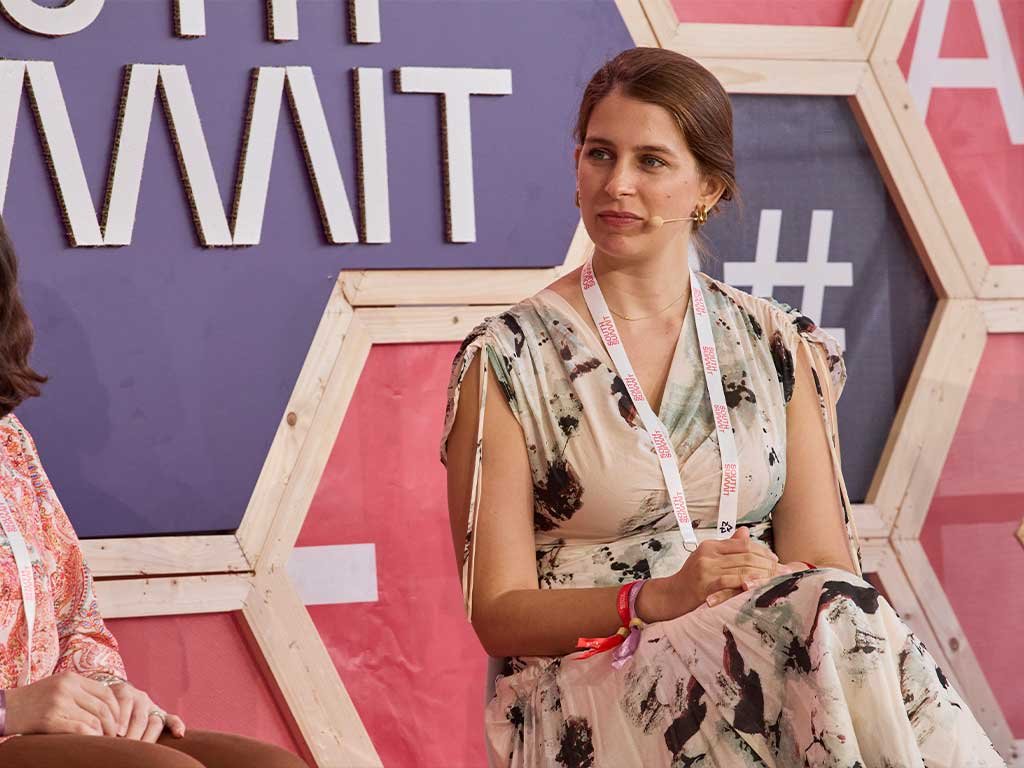
Reaching out to the residents of each neighborhood with our projects, ideas and knowledge
FROM Noticias
BY Lisandra Andrés
The Callejón de Hamel, located in the very popular neighborhood of Cayo Hueso, in the very heart of Centro Habana, and considered the largest mural dedicated to Afro-Cuban culture on public streets, is the site chosen by Lo Llevamos Rizo, Afrodiverso and Poderosxes to reach out to populations of Black women in vulnerable situations.
To this alley, barely 200 meters long, closed to traffic and open to the imagination, these enterprises come to talk about how to appreciate and care for natural Afro hair, the use and benefits of the menstrual cup, and the challenges and rights of Black lesbian and transgender women.
Argelia Fellové, coordinator of Afrodiverso, one of the Afro-Cuban activist collectives in Havana, assures that these spaces promote culture in the local neighborhood, making families aware of the priority needs of boys and girls, with an impact on local development. The initiative comes at a time when a new Code of Families is being debated nationwide, which contributes to putting vital issues for the community on the table.
“These spaces are very important because they make us visible. Locals come to know that there are many women in Cuba and in the world who offer different cultural expressions, empowering us through entrepreneurship. The community is our raison d’être, because Afrodiverso is art, health and community. We need to reiterate the importance of the issue of assisted reproduction for us as lesbian and bisexual women. We also need to raise the labor issue, because women who are male transgender have difficulties in getting the job they want,” she explains.
Another of the projects that reached this space is Lo llevamos Rizo. Established as a brand since 2015, the enterprise emerged as a natural Afro hair contest in the framework of the Havana Biennial. Today it is a socio-cultural project, which for less than 3 months has also explored the paths of entrepreneurship.
“With this commercial line we intend to consolidate ourselves as a self-financed and self-managed project. We are here with our products, with part of our catalog, also offering it to the community. In this way we are self-valuing and self-accepting ourselves as Black, mestizo, Afro-Cubans. It is also a way of remembering where we come from, where our history comes from, why Black women do not have to follow social patterns that have been imposed in the past, and it is the means we have to liberate ourselves and make our own revolution,” Ania Liz de Armas, coordinator of Lo Llevamos Rizo, tells Negolution.
The women from Poderosxs, meanwhile, talked about the use and selection of menstrual cups, dispelled myths and explained the benefits of their use, a trend that more and more people are joining every day to advocate for new and healthy forms of feminine intimate care.
Liz Oliva, an activist with Poderosxs, says that in the midst of the economic crisis that the country is facing right now, they realized that there were a lot of women in the community, especially Black women, who did not have access to the menstrual cup, which could solve the shortage of sanitary pads and tampons.
They then set out to find someone to supply them. Thanks to a donation from the Cuba solidarity project Code Pink, which is also involved in major solidarity events between the island and the United States, they provided menstrual cups to the women of Cayo Hueso.
“We talk about menstrual cups, but we also talk about female empowerment, sexual and reproductive freedom, and we do several workshops especially with entrepreneurship, trying to provide visibility by coming to and putting the spotlight on these communities that generally do not appear in the media, and generally do not have access to these types of products,” Liz notes.
“The crisis really hits all of us, but it is in marginalized communities where it is more evident. I believe this is a task that requires daily efforts. Sometimes we feel that we are taking very small steps, but they are really necessary. The transformation has to be widespread because there are more urgent problems such as housing, food or medicine shortages. This is a little suggestion that helps start the discovery of the female body, of the empowerment of the female body.”
Thus, this picturesque part of the city also becomes a space for activism and the defense of the rights of vulnerable female communities, thanks to the work of three projects led by women.


